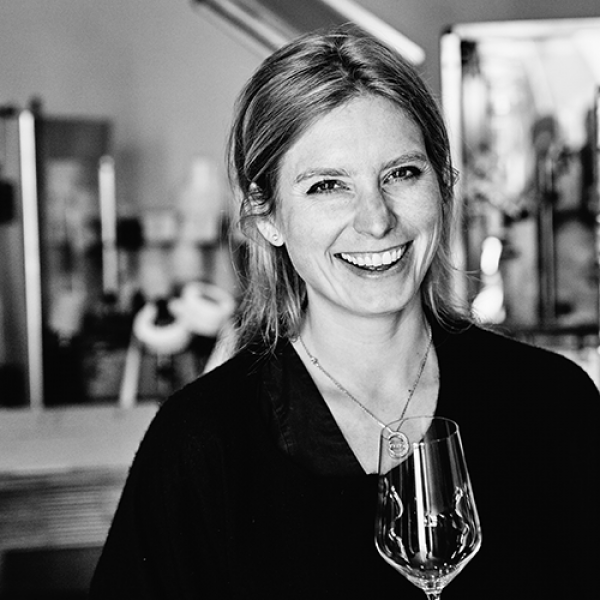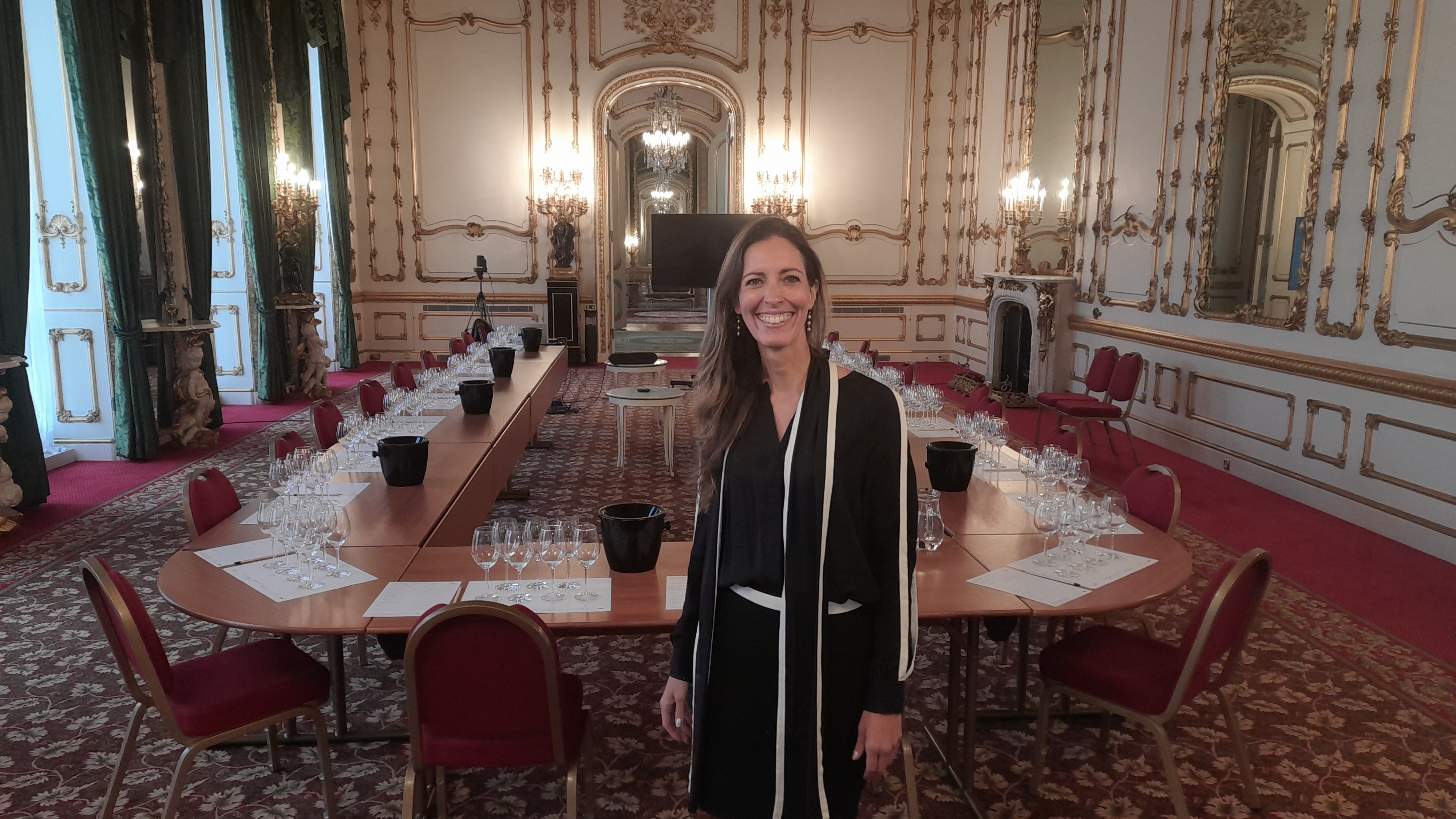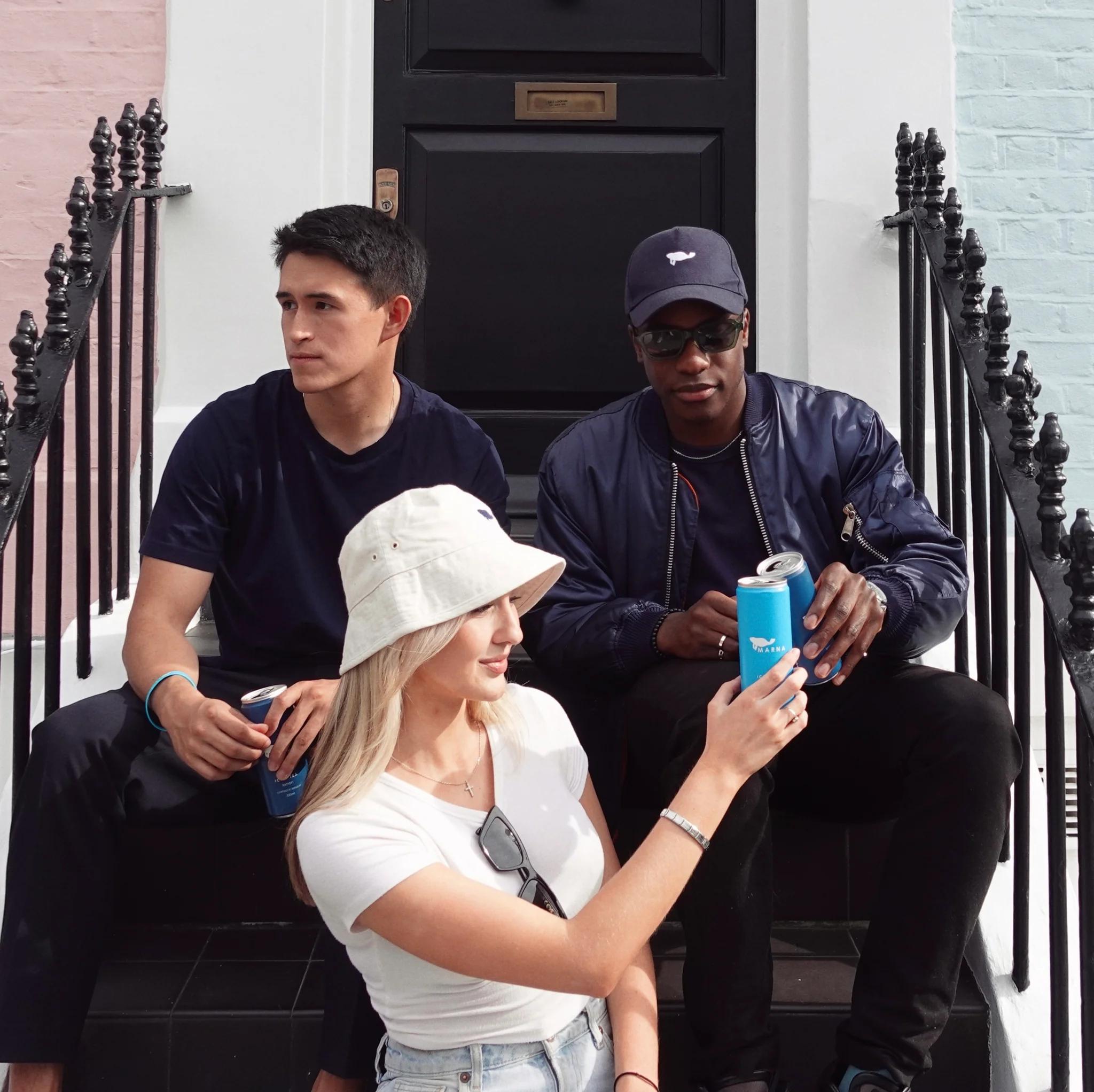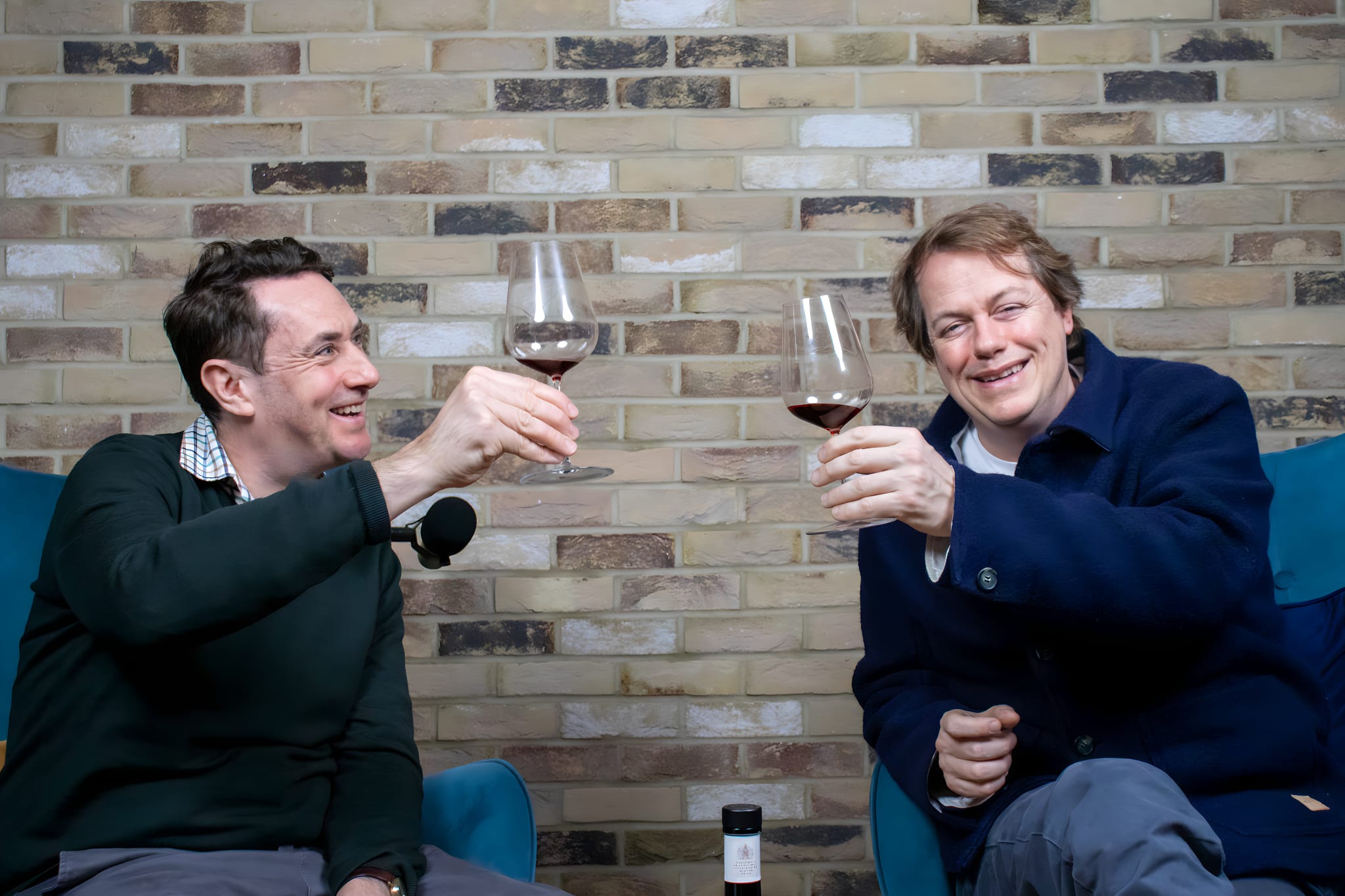Katy Keating, who has just become a trustee of The Drinks Trust, shares her management strategy and philosophy that is helping to transform the direction and culture of Lay & Wheeler.
Katy Keating’s CV reads like the lead character from a John Grisham best seller. She studied at Ivy League Princeton University, went to the Harvard Business School and was a scholar on the Fulbright cultural exchange programme in Italy.
Where her Grisham credentials fall down, however, is she did not then join a top law firm. Instead she went into business and digital. First an internship with Amazon, then the US online food and wine start up, Lot18, before branching out to onefinestay, a sort of high end Airbnb.
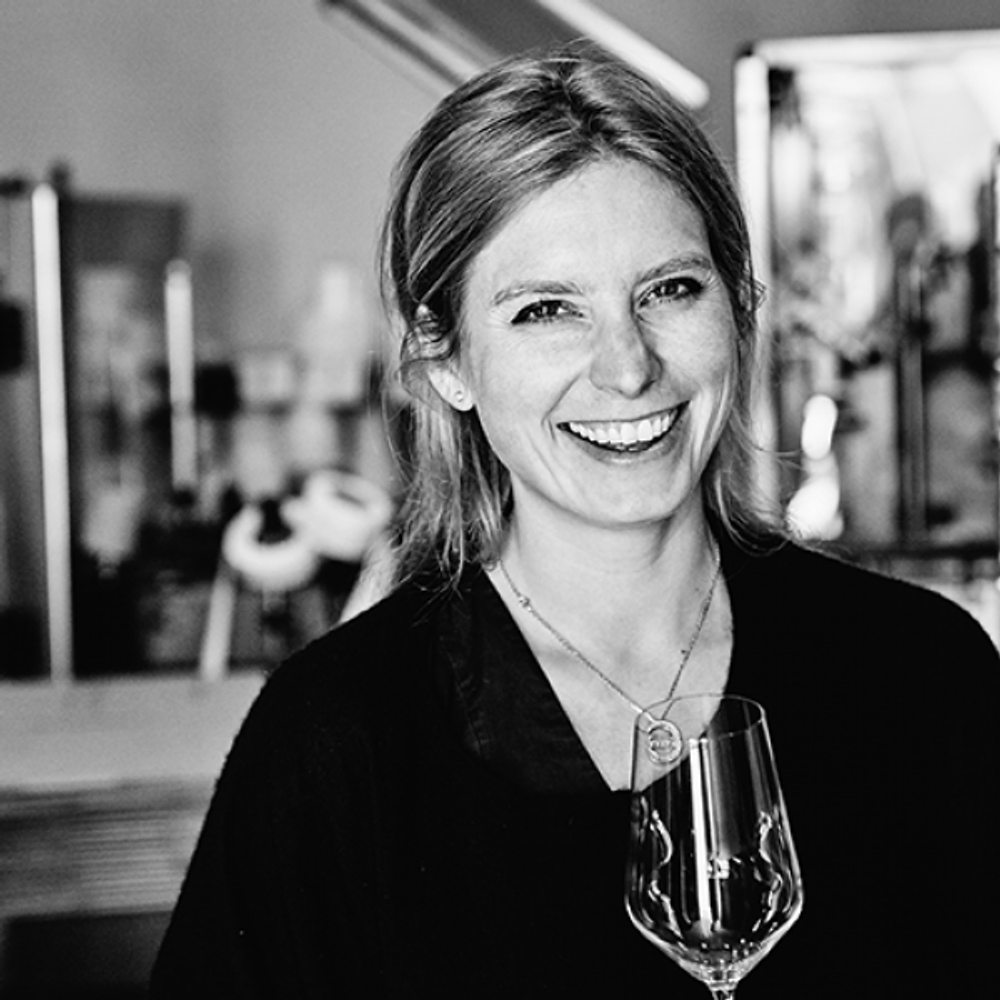
Katy Keating puts a huge emphasis on creating and driving the right staff culture as part of her management style
It’s not the usual list of wine distribution or producer jobs that most leading wine executives have. Instead it’s a career background driven by a people management strategy first, and product second. Yes, she is interested in and loves wine as a category, but it is running a successful business and having a super motivated and inspired team that gets her jumping out of bed in the morning.
She even admits she had not heard of Lay & Wheeler when she was first approached about potentially working for the business.
That approach came from Rowan Gormley, the then chief executive of Majestic that owned Lay & Wheeler, who was looking – back in 2016 – for someone to come in and help turn around a business that was running fast to either lose money or break even every year.
Gormley may have his detractors, but his record for identifying and then putting his faith in young talent is one of his biggest strengths – best illustrated by the dynamic young management teams he built up both at Naked Wines and Majestic whilst under his leadership.
Gormley knew, through a mutual friend, that Keating was looking for a career change, and was keen to work in wine. He sold her the idea of coming in and working with him, and the Majestic management team, to decide whether Lay & Wheeler had a future as a viable business.
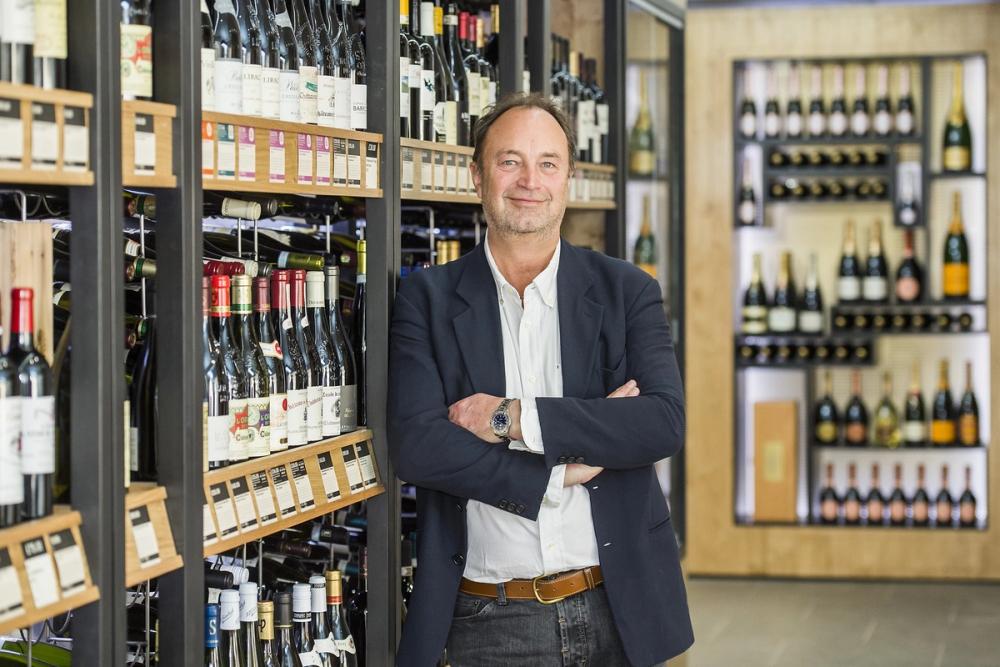
Ex Majestic and Naked Wines chief executive, Rowan Gormley, has a talent for picking rising stars and giving them a chance to shine in senior management roles like he did with Katy Keating and her chance to become chief executive of Lay & Wheeler
It was a challenge she was delighted to take on. Particularly when she was immediately struck by what she saw as the potentially winning combination of “extraordinary” high quality wines and an “extremely loyal customer base” – supported by a “very passionate and dedicated team that just needed a great big hug and some structure” to get the best out of them.
Start up mentality
Her challenge was straightforward enough – figuring out how to re-invigorate a business as established as Lay & Wheeler. To do so she went back to her own experiences of working for and being inspired by start ups.
Now it has been 167 years since Lay & Wheeler might have been described as a start up, but that is the approach that Keating took in order to breathe new life into it.
“Even though we have been around since 1854 it was a case of how can we behave and take the best bits of start ups and apply that thinking to what is very much the opposite of a start up,” she explains.
She says the reason she is so attracted to start ups and the disciplines they deploy is: firstly, they are by nature a “new business model and everything is being done from scratch”; secondly, there is very much a can do culture “which is very mind opening”; and then, thirdly, there is a desire to do things quickly and get results fast. All of which gives the team the sense the business is “collectively yours and we’re all in it together to help it succeed”.
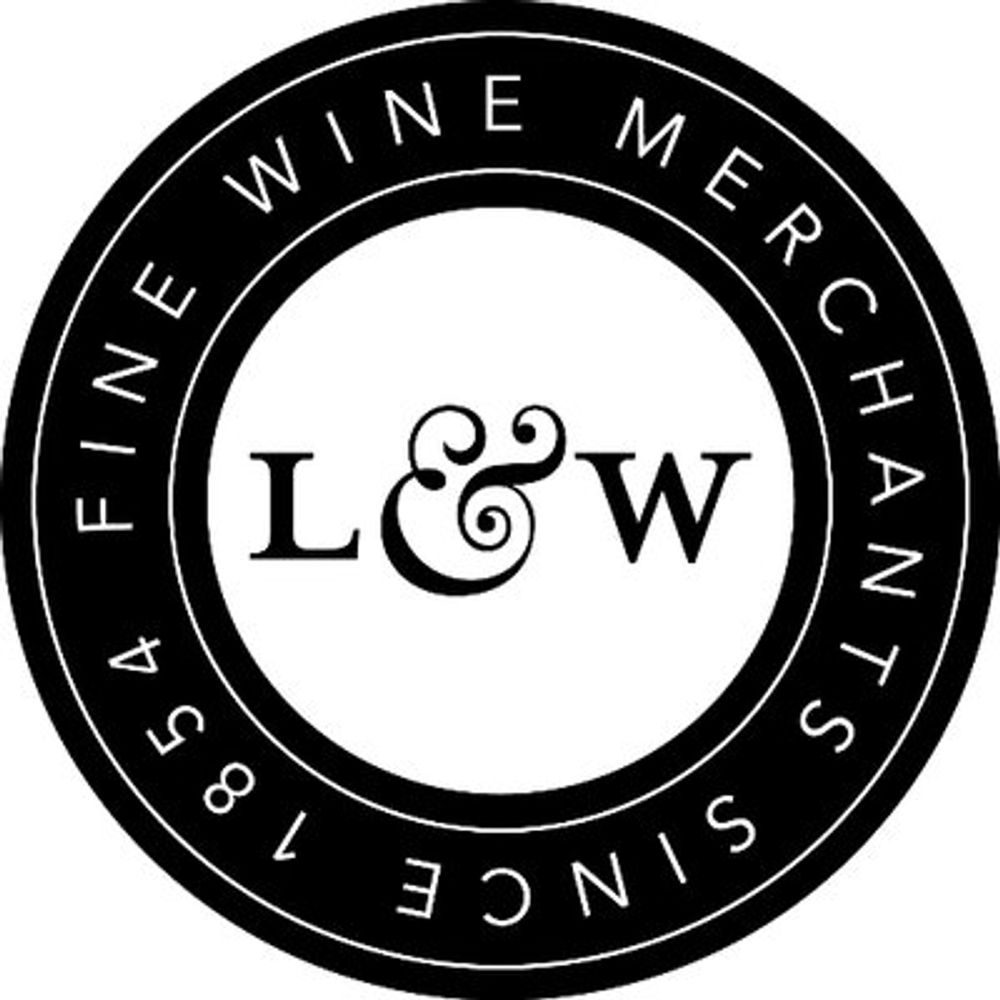
“The idea that we all have a founding hand in it, even though we are not founders. That spirit is really compelling to rally people around a common goal,” she adds.
Those were the “best start up bits” she was confident she could “migrate over to Lay & Wheeler” that were “sustainable” over a long period of time. With one big difference. They were clearly not starting a business from scratch.
“The beauty of Lay & Wheeler was that it has this incredibly rich, valuable foundation that no start up could possibly have,” she says.
Working together effectively
Her main responsibility, she says, was to get all parts of the business working more effectively together, which she breaks down into three areas: its team; its producers; and its customers.
“Unless we have all those three parts working well together, and in harmony, the business won’t succeed. That basically then became the path to getting us to where we are now and hopefully a very exciting future.”
The first priority, she says, was the team. “With the right team you can do anything,” she adds.
To do that meant working together to decide, collectively, what the Lay & Wheeler staff culture was going to be. Which was very much the focus in the first year of her joining the company.
It was also about introducing some basic staff management structures like annual review plans, clear development opportunities and an equal benefits system.
Another influence from her start up days was introducing personal touches that showed you cared about the team’s well being. Like having a regular Ocado delivery that allowed them to enjoy fresh milk, coffees, teas, yogurts and fruits for breakfast and then salad and other items that they make their own lunches with. “Just small things that show we genuinely care about the team and want to make sure everyone has a nice time in the office. We got Sonos in as well so people could play whatever music they wanted.”

The Lay & Wheeler social media platforms are very much about celebrating the people and their stories as it is their wines
Old rigid staff rotas and a strict holiday policy were scrapped. She says she wanted to give the team the freedom to make “adult” choices about when they were away, or in the office and that they worked with their colleagues to ensure there was always cover. “No-one was going to manage that for you,” she adds.
She adds: “We spent a lot of time thinking about what sort of business we collectively want this to be. The informal motto we all championed was ‘team work makes the dream work’ – it’s very cheesy but it is something we talk about all the time and I really believe in. It has become a huge part of our culture.”
There was also some hiring to be done to bring in fresh, new talent and where necessary agreeing to part ways with others.
“We wanted to end up with a team where everyone behaves like an owner and not an employee and that we are all building a Lay & Wheeler that we believe in.”
Part of that strategy was to remove individual commissions as a sales incentive and switch to a team bonus, again re-inforcing a culture of all working together for a common goal. “That was inspired by Rowan. We are all in it or no-one is in it. So if the company hits its goals then we will pay out a bonus on the basis that the company has succeeded and the individuals have done their part. We have hit our bonus five years in a row.”
Keating is also keen to stress she was not out to create a whole new Lay & Wheeler, but “preserve the amazing pieces that were already there and then layer on top of that some new things to help us move forward”.
“A large part of that year was about removing barriers. What’s stopping you from buying even more of the best wines in the world? What’s stopping you from selling them? What’s holding us back? Once you place those questions in a team’s mind then everyone’s in it together.”
The right culture
Keating says her management style is definitely influenced by watching, listening and reading about other leaders and seeing what steps they take and what lessons she can take from them. She would like to think her team would see her as having a “consultative leadership style”. “It’s why a lot of the language we use is ‘we’ not ‘I’,” she adds.
An approach best illustrated, she says, when she was recently asked if she felt Lay & Wheeler was“her baby”. “Certainly not, it’s our baby,” she replied.
A culture, she says she is proud to say really came to the fore one recent weekend after a company get together on the Friday before. Come Saturday morning the customer relations team were all online answering and following up on questions they had missed during the company event, even though some were on holiday. It gave her immense satisfaction: “That’s exactly where we want to be. You can’t tell people to do that.”
She adds: “We have been very open to giving young, promising people huge amounts of responsibility, whilst also saying there is great merit in learning from people who have years of experience.
“Inspiration and knowledge can come from fresh, new pairs of eyes and also from people who have seen it all and back.”
Keating admits she also reads more than her fair share of business management advice books, but also takes her inspiration from non-obvious business texts too. She has, for example, just finished a book called “The Secret Life of Trees” and how for a forest to exist, each tree has to grow individually, but there has to be a symbiotic relationship between all the trees where they can all grow together for the forest as a whole to live and be fruitful. “Trees on their own do not thrive. That’s why at Lay & Wheeler it is a team mentality, a team of stars that work together to be even better.”
Producer and customer relationships
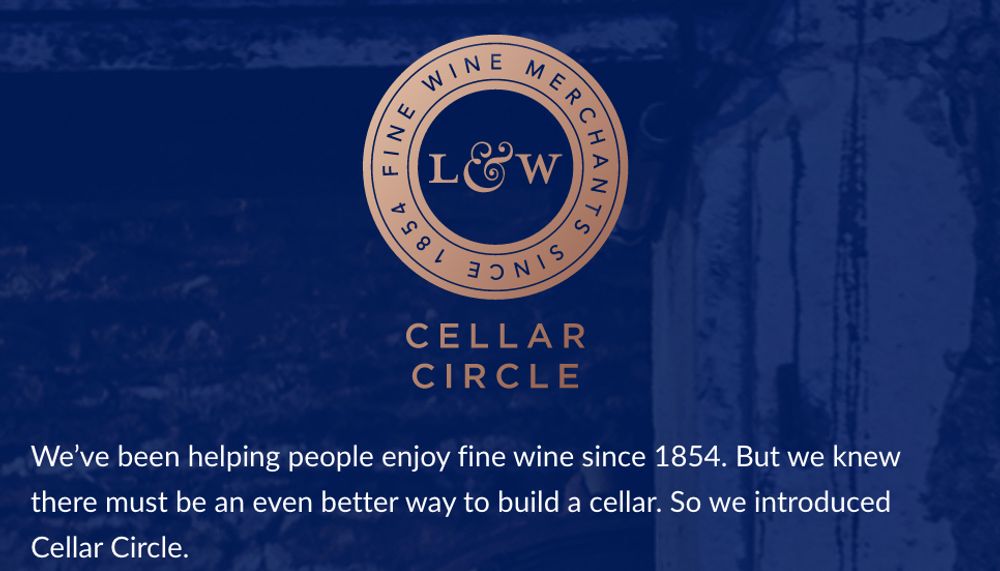
Lay & Wheeler has introduced the Cellar Circle to provide a more personalised approach to building a wine collection that is relevant to you
Once she felt the business had got the staff culture on the right footing, it was then time to focus on its producer and customer relationships.
Which meant spending time talking, and where possible, visiting its producers so that they could hear first hand about the changes – “and corrections” – the business was making that would potentially help them sell more wine.
In tandem to that was the on-going work that Lay & Wheeler is doing to be on top of, to enhance and improve the overall customer experience. This is where she again looked back on her digital past for inspiration and, in particular, the customer experience work they did at onefinestaywhere they looked at every single consumer “touch point” they had within the business to make sure it surpassed a customer’s expectations.
If you get your “customer experience” right then it is potentially the most powerful “retention tool” you have, claims Keating. It can “become an engine for growth” that allows your business to grow “more sustainably”. “Customer experience is something we need to be improving every single day,” she adds.
It is that high level, professional approach she learnt working in lifestyle digital that she believes the wine sector as a whole can really benefit from. “The wine industry is ripe for evolution and it needs to happen in years – not decades.”
Financial investment

Keating has clearly had a significant role to play in the Lay & Wheeler turnaround story, but it would not have been possible without the investment from Coterie Limited, a private investment arm made up of two families, that were willing to buy the business from Naked Wines Plc for £11.3 million in October 2019.
Crucially Coterie’s reason for wanting to make the deal happen “was because of their love of wine,” says Keating. It means the two families behind Coterie are here for the long term, she stresses.
They are also very happy to be in the background and allow the Lay & Wheeler team to take the rudder and plot their own course. She best likens their role to being like one of a steward: “The message [from Coterie] is that we back the team, we back the business and we are just as invested as the team.”
It has clearly been a game change for Lay & Wheeler and meant it now has the long term security that it just was not going to get with Majestic.
Keating explains: “I think what that support has given us, is that it has really paved the way for us to always take the long term perspective. So we are not doing anything with a short term gain or urgency in mind. We are doing everything with our relationships in mind and our building for the long term, doing things that we can sustain.”
It has also meant it has been able to invest in real growth. Which in practical terms has meant the building of a new state of the art warehouse and head office, and being able to go out and attract top talent to the business. Even in lockdown it has been able to add eight new members to its team.
Notable new hires include former Berry Bros & Rudd executive, Simon Staples, as the head of its new private sales team, which has also been expanded to build corporate and institutional clients Catherine Petrie MW joined the growing buying team at the beginning of 2020. Stuart Murfitt has also joined as head of operations to help oversee the big warehouse project close to its traditional base in Suffolk that is due to open in summer of 2022.
“It will be our new home – wines and team all in one place and really represents this idea of us owning our future and is an investment that means we will control our whole service, end to end,” she says. “We are so excited about it.”
Biggest steps and what next

More from Lay & Wheeler’s Instagram page
Keating says she is pleased with the steps the business as a whole has taken in “putting the customer at the heart of what we do” but admits she looks far more at the “to do list” than looking back at the “accomplished list”.
Very much on that “to do” list are the investment in technology and support systems that can help its teams go to the next level of customer service. Ultimately, she says, Lay & Wheeler is an e-commerce platform and will succeed or fail on how successfully it operates as an online retailer in an environment where the superpower of Amazon has “raised everyone’s expectations” of what you can do online.
“Our thesis is that we should be investing money in our website to do what a computer can do best and then invest money in our team in a way that the role of people can never be surpassed. We need to be using technology to enable our teams to do even more for our customers and our producers.”
But she also admits it is difficult to truly convey “the story” behind each wine when you are only selling online. That’s the constant challenge for all e-commerce wine retailers, be it for fine wines or mainstream wines.
“We think of ourselves as the connective tissue between the producer and the consumer and how do we make it dead easy and fun to buy wine.”
Which also means finding more customers to buy those wines and whilst Keating is very grateful and thankful to have a such a long standing loyal customer base, the real growth for any e-commerce business is being able to acquire new customers – and then keep them.
“There is a big opportunity to make wine more accessible even at this fine wine level so we see that as a challenge for us in how we pull people into this amazing experience without the fear and pressure of not knowing something. We know we have got a lot of work to do there. We would love to be a place where people start their wine journey and not just for people who know a lot.”
Lay & Wheeler also wants to do more to play its part in promoting a sustainable supply chain and work with its producers to ensure they are doing all they can to put the environment first. Be it moving all its paper to recycled paper to rainwater harvesting, solar panels and electrical vehicles at its new head office.
“We know what we want to do more of but we are also still a pretty small team at the end of the day.”
It’s all about producers and customers
Ultimately she says the driving motivating force for her and all the Lay & Wheeler team is this sense of responsibility that you are there to help sell wine for all the families of wine producers who have sweated to make the wine that they are not tasked with selling.
“We have this deep sense of responsibility to do right by those producers.”
But then “equally” there is what they can be doing to help their customers who are “working incredibly hard and any penny they are putting into buying wine needs to be very well spent”.
“We take great pride in the fact our advisors will frequently recommend wines that are less expensive and are really trying to find value for our customers and get them the right wine for that customer.”
Keating’s team ethic is very much the DNA of the new Lay & Wheeler. “Once everyone is focused on doing things together then the customer experience is better because people are doing their best by the customer and not trying to hit some target that they have individually. That way you get the right wines in the right hands.”
Which is pretty spot on as a mission statement for a wine company that is 167 years old.
